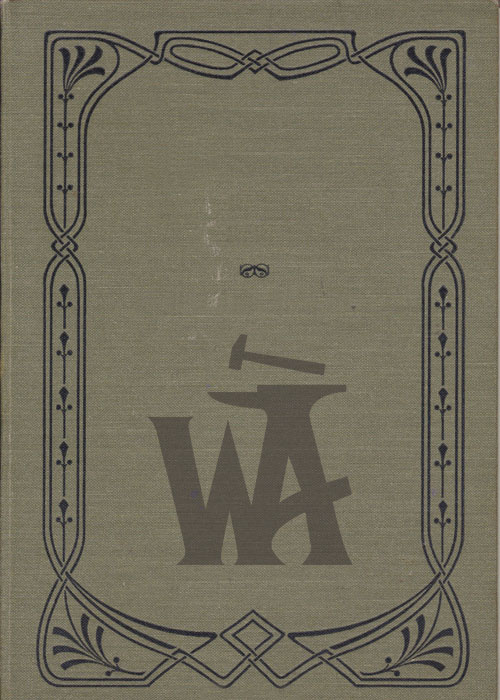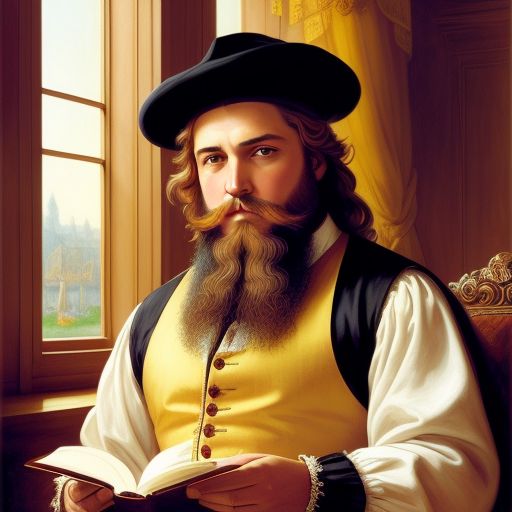[Original Letter Curated by the Ashmolean Museum, Acquired August 22nd, 1910. Believed to have been written and sent in the winter of 1799 to C.Sitio-e-1. Acquired by Task Force 08 on January 8th, 1992, and translated by Agent Cera-Prime-12]
Mme. Posat
It is with some excitement and more regret that I write you this letter. I will place it and the discovery in question in the hands of your man in Cairo, and then our correspondence will likely end. I am being followed, and I believe that it is the agents of the Other which you have warned me. I doubt I will survive to see next year.
To begin, I followed at the behest of General Bonaparte and the Directors to aid in building infrastructure of the soon-to-be liberated lands of North Africa. I am no engineer, but as an antiquarian I am well equipped to assess any treasures unearthed in the bazaars and dig sites in the vicinity of our General's work. I had thought perhaps to have a place of honor among my fellow savants, but we were treated like common bean counters and civilian laborers. Half of our job was building roads. This is a barbaric country, a country degenerated by the kleptocratic Mamlukes and their casual corruption.
Forgive my distaste for the local culture, it is an interference in my work on many levels and now it appears I will have given my life to that work and can only hope that I won't be forgotten.
The little company of savants to which I had been assigned were obliged in January or perhaps February of this year to follow General Bonaparte into the Levant in a preemptive attack against the Ottomans. Sultan Selim III had heard of our fleet's unfortunate destruction at the mouth of the Nile, and had decided to strike back and take the recently reacquired liberty of the people of Cairo and greater Egypt.
I must confess to a bit of doubt at this point in my narrative. I know that one savant's disgust and confusion is hardly noteworthy given the monumental discovery I have made but the siege of Jaffa was a difficult one. I am not a superstitious man, you understand. I comfort myself only with cold naturalism and the observable.
I was awake early one morning, instructing a smallish bevy of camp followers of the importance of bringing to me any baubles their paramours may bring them while taking prizes in the ancient town. I explained to them that things may be more valuable than they seem by virtue of great antiquity. I had no sooner finished my narrative when one of the prostitutes shrieked in horror. I turned to see a man in brown leather robes striding unnoticed among the men.
It had been his face that had turned the woman's heart to terror; his eyes were milk-white, blank and staring, his skin was at once too tight as if from structures beneath and too lose so that it sagged and pooled near his jowls. I shouted to the men to desist their game of dice and detain the interloper, and they moved to oblige. The creature's arms simply came loose with a sound like a rotten tree branch being twisted apart. There was no blood, only insects which poured out and leaped about with energy. The interloper's mouth opened and I heard nothing, although I could tell that he screamed. The soldiers became enraged and thrust into his trunk repeatedly with their blades. Corporal Giedot, having looted a curved British infantry blade, finished the work by chopping the stricken man into pieces. The bugs that had infested his flesh and veins burrowed into the dirt and sand on which we had camped.
As a man of enlightenment, I have no easy way to say this; that creature had either been dead for an unimaginably long time, or he had never been alive. The bugs that had supplanted his blood and most of his organs had left nothing to sustain his life. It was that very moment that the plague struck our camp. It came on the fleas. The doctors believe that I am wrong, but I know what I saw. The men who carried the disease were black with sand fleas nearly every night, and the fleas precede the onset of the plague. We haven't seen someone hollowed out in the way of the plague bearer, but it's been most of a year and many of our men have yet to recover. Perhaps stronger specimens will experience the emptiness. I hope not, for their sake.
Despite the plague and our difficulties, General Bonaparte eventually took Jaffa. The men are already forgetting, but know that when word reaches you of a glourious victory at Jaffa it is simply the memories of men grown old before their time. Once the walls were breached, the men were wild animals that could not be controlled. Not that any of the officers actually attempted to restrain them, mind you. They pillaged and despoiled like an army of the Great Khan, and thousands of the people of Jaffa were so killed. In the end, the surrendered garrison also met a grisly fate; the general demanded they be executed for defying him for so long. The men tasked with the deed left in the morning and returned in the early afternoon. Rather, what was left of them returned. They looked every bit as hollow as the bug-man had been.
After Jaffa, General Bonaparte took all of the healthy men away. He tried to leave the camp followers but those of us healthy enough to walk wouldn't have it. We did not want to wait for the plague to kill us. We marched to Acre and found a siege more horrible than even the plague-ridden Jaffa.
I will not bore your feminine head with a detailed account of the battle, but suffice to say that it was a disaster. I am sure that Bonaparte will describe it as a grand victory, he even had the gall to tell us we had accomplished his mission, but know that it was no such thing. Our soldiers were squeezed from the city by its residents and met with British cannon and Marines from the shore. Bonaparte had those that died before firing a shot stricken from the rolls with no ceremony and left to rot on the field. The soldiers left, as did most of their camp followers. I remained behind, because I wanted to tour the city as best I might and possibly discover relics there that the locals may have inherited from the city residents of ages past.
The locals were suspicious of my accent, understandably. It wasn't until I met a man named Antoine de Phélippeaux who had been instrumental in the city's defense despite having been born in France to Frenchmen. This faithless Frenchman was glad to have a conversation in his native tongue with its own native son, and he had a good mind for artifacts and history as well. When the topic had turned to my mission, he grinned as a schoolboy and asked if I wanted to know a secret. I responded that I love secrets, and he led me to the extremis edge of one of the trenches that he himself had ordered built inside the city for defense.
The trench was deep, this particular edge was a fighting pit that a grown man could stand in to pass ammunition to a canoneer team. I marveled at the skill of Antoine's diggers; they had apparently dug such a monstrosity overnight. What's more, they had removed the sandy soil in blocks and largely preserved a cache of much older items. Believe me when I tell you that your admonition in Bavaria was the first thing I heard in my mind. This was clearly a cache of items from the Old Ones, though I believe the cache was deposited by a much more recent race.
It contained the "spear" you described. It also contained a few odd hexagonal coins, an amulet depicting winged male genitalia, and a scroll. I am sending along the spear and the scroll. Antoine claimed the amulet and his men took a coin each. In my excitement, I didn't notice at first the second paper man.
I call him a paper man because now that I think on it, that's what he reminded me of; the nest of a paper wasp in the shape of a man. There was no doubt, mind you, that he had once been a man. The peculiarly hanging and clinging skin made that a certainty. There was nothing left of his humanity, however, and when he attacked it was with the savagery of an animal. Antoine fought the thing with a curved Arab sword, and inflicted many wounds. Out of those wounds poured wasps and fleas and glossy black ticks in great gouts. Stung and bitten, Antoine retreated from the pit and ordered oil to be thrown in to be fuel for the torches. He needn't have bothered; the moment the fire touched the flesh of the paper man, it ignited in an instant. I cannot describe to you the sound, only that it was somehow more horrible even than the smell. I stayed a week longer before setting off to return home with my prizes. It was a few days later than I'd intended, but Antoine had fallen ill to the plague and died so I deemed it necessary to pay my respects.
I struck off towards Cairo, and found stragglers from the army. Most of these stragglers were dead or dying, having been victims of punishing Ottoman raids and the murderous heat. I aided where I could, delaying me further. That was when I saw them on the horizon. By now I know that inexorable shambling walk. There are paper men after me. I know they carry the plague with them, maybe worse. Even so, I do not think that I could inflict the wounds that I have seen many a brave Frenchman inflict. I am simply a scholar, not a soldier, and it's possible that the paper men will kill me while receiving no wounds of note no matter how hard I struggle. It is a sobering thought now, in the ruins of Bonaparte's Coptic ambitions, that so many brave soldiers will leave their carcasses to the jackal and the sun and I will be among them.
Regardless of my melancholy, please take this letter in the spirit it is intended, please take the items mentioned and good luck on your travels, my friend.
Sincerely;
Cyril Gaumont







